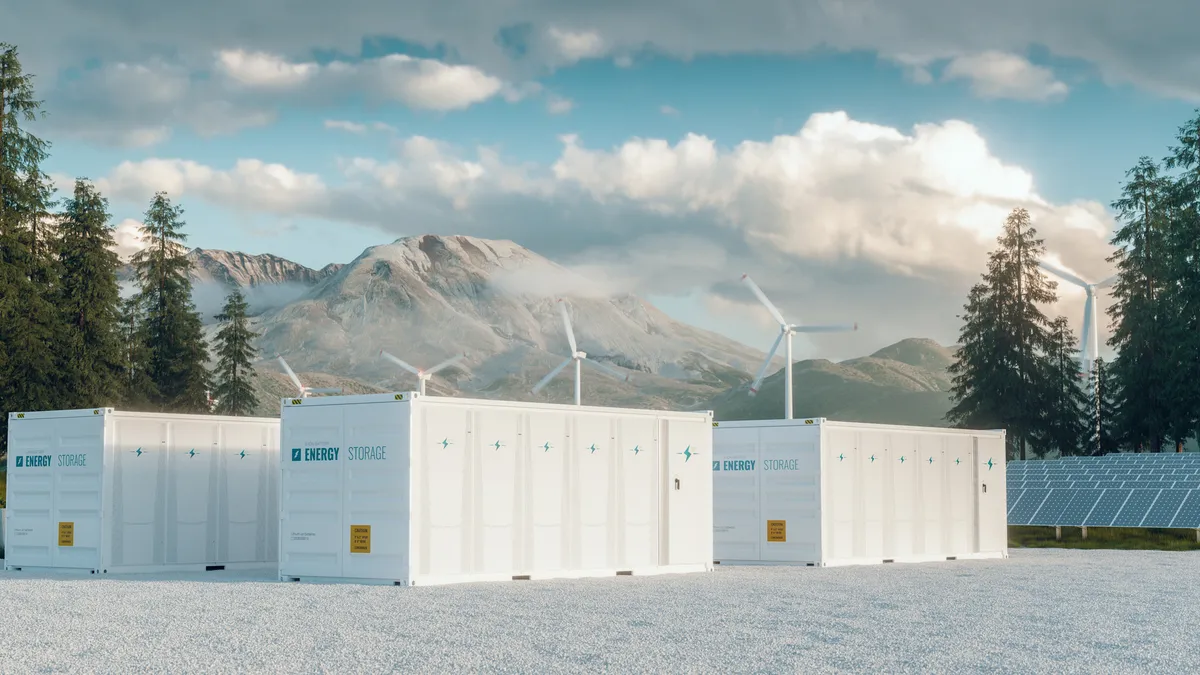Dive Brief:
-
Xcel Energy plans to install a single unit of Ambri’s liquid metal batteries as part of a demonstration project to take place over the next year at the Solar Technology Acceleration Center in Aurora, Colorado. Xcel Energy, SunEdison, and Abengoa Solar founded the nonprofit research site.
-
Founded at MIT and funded by the Department of Energy’s Advanced Research Projects Agency-Energy as well as Bill Gates, Ambri has developed an antimony-based battery that does not require cooling or access to limited supplies of in-demand materials like lithium. The battery is cheaper and lasts longer than lithium-ion technology, according to Adam Briggs, Ambri chief commercial officer.
-
While this year’s project will be the first demonstration with a utility company, Ambri is planning five similar pilot projects for 2023, Briggs said.
Dive Insight:
Massachusetts-based startup Ambri plans to begin heating up the battery market — quite literally — over the next few years.
Xcel Energy and Ambri announced on August 25 that the two companies would install a liquid battery system in Aurora, Colorado, to evaluate the technology’s performance in real-world, grid-connected scenarios at the Solar Technology Acceleration Center.
“We are pleased to work with Ambri as we continue bringing our customers the clean, affordable energy they depend on,” Alice Jackson, senior vice president, system strategy, and chief planning officer at Xcel, said in a statement. “We look forward to learning what their technology can accomplish in a range of extreme environmental conditions as we look to build out the long-duration energy storage that will help us reach our carbon reduction goals.”
Although Ambri is also trialing its batteries at a data center, Briggs said the company aims to continue demonstrations with utilities and other large-scale applications through the year to come because the company believes its technology is particularly well suited to grid-scale applications.
Unlike lithium-ion batteries, which must be cooled while operating to avoid overheating, Ambri’s liquid batteries operate in a high-temperature environment, Briggs explained. The batteries are housed within insulated containers so that after the start-up phase, the heat from their own operation keeps the batteries online. This removes the cost and energy loss associated with cooling systems, Briggs said.
The antimony-based technology also has the added benefit of having a longer lifespan relative to lithium-ion technology, with Ambri’s batteries experiencing minimal capacity loss over a 20-year lifespan, Briggs said. One study cited by NREL put the average lifespan of lithium ion battery packs used in EVs at around 10.5 years, although multiple factors influence battery longevity.
“So they have really strong safety [specifications], longer life, lower cost, and they’re designed for 4-24 hour applications,” he said. “This is primarily for shifting energy every day. In Colorado, for example, there’s going to be a lot of solar there, so you charge the battery during the day, and discharge during the evening, over whatever period you like, in order to contribute to the grid.”
Ambri is aiming to pilot its system with five additional partners while simultaneously developing standardized 1 MWh containerized battery units, which the company hopes to begin shipping to customers by 2025, Briggs said.













